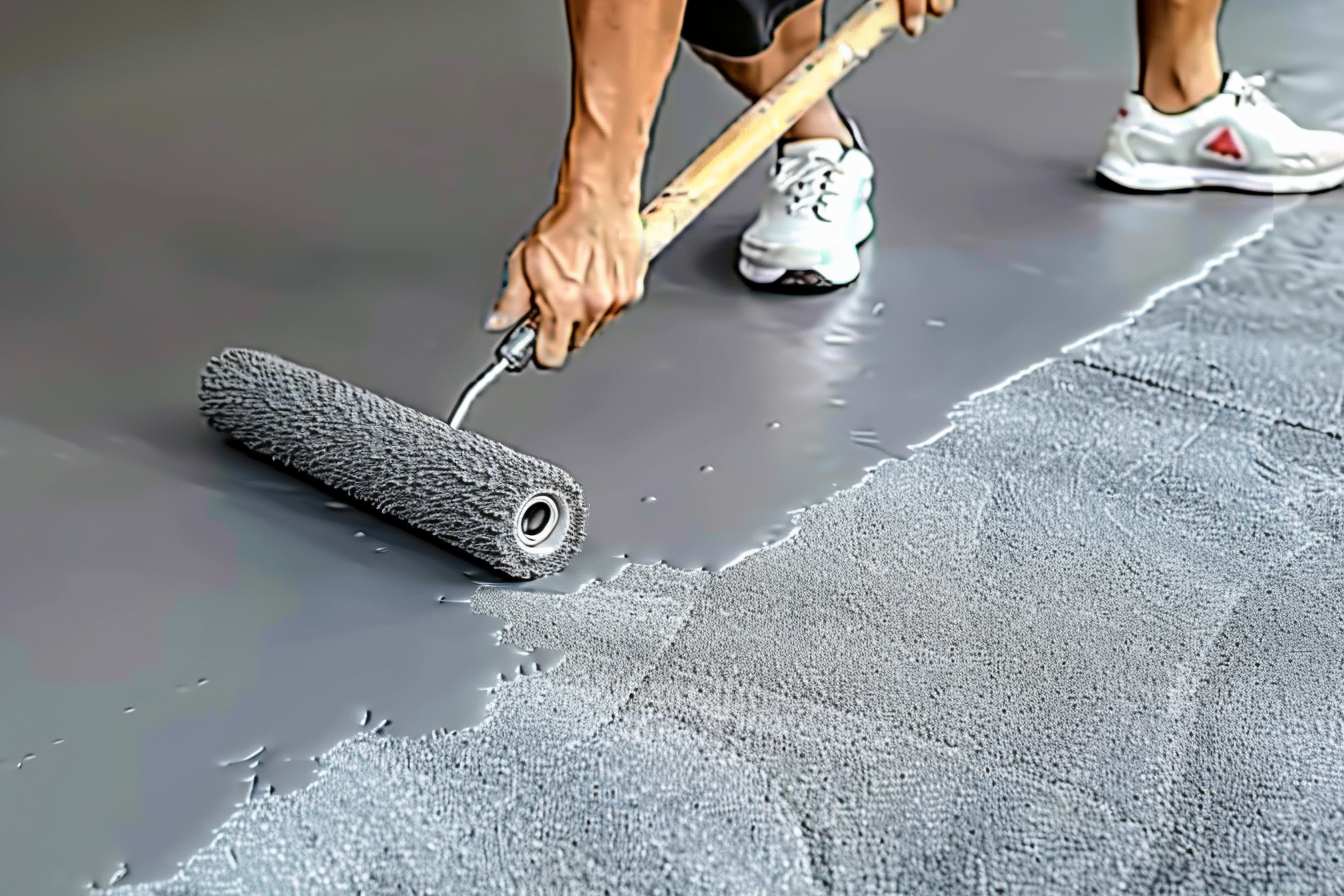The Complete Guide to Garage Floor Coatings: Types, Costs, and Benefits
Transforming your garage floor from a bare concrete surface into a durable, attractive workspace can significantly enhance your home's functionality and value. Garage floor coatings provide protection against oil stains, chemical spills, moisture damage, and daily wear while creating a professional appearance that makes cleaning effortless. With various coating options available, understanding the differences between materials, application processes, and long-term benefits helps homeowners make informed decisions that suit their specific needs and budget requirements.

Epoxy Coatings for Garage Floors
Epoxy coatings remain the most popular choice for garage floor protection due to their exceptional durability and chemical resistance. These two-part systems create a hard, glossy surface that withstands heavy vehicle traffic, dropped tools, and automotive fluids without showing significant wear. The application process typically requires thorough surface preparation, including concrete etching or grinding, followed by primer application and multiple epoxy coats.
Professional-grade epoxy systems often incorporate decorative flakes or metallic pigments that enhance visual appeal while providing additional texture for improved traction. The curing process usually takes 24-48 hours before light foot traffic and up to seven days for full vehicle use. When properly applied, epoxy coatings can last 10-15 years with minimal maintenance, making them an excellent long-term investment for active garages.
Polyurethane Coatings: A Flexible Choice
Polyurethane coatings offer superior flexibility compared to epoxy systems, making them ideal for garages experiencing temperature fluctuations or minor concrete movement. These coatings maintain their integrity in extreme weather conditions and provide excellent UV resistance, preventing yellowing or chalking when exposed to sunlight through garage windows or open doors.
The flexibility of polyurethane allows it to expand and contract with the concrete substrate, reducing the likelihood of cracking or peeling over time. This characteristic makes polyurethane particularly suitable for newer homes where concrete may still be settling or in regions with significant seasonal temperature variations. Application requires similar surface preparation to epoxy, but polyurethane typically offers faster curing times and can often accommodate light traffic within 12-24 hours.
Acrylic Coatings: Cost-Effective and Versatile
Acrylic coatings provide an affordable entry point for homeowners seeking garage floor protection without the higher costs associated with epoxy or polyurethane systems. These water-based coatings offer good chemical resistance and are easier to apply than solvent-based alternatives, making them suitable for DIY projects with proper preparation and technique.
While acrylic coatings may not provide the same longevity as epoxy or polyurethane options, they offer excellent value for light-duty applications and can be easily maintained or recoated as needed. The breathable nature of acrylic allows moisture vapor transmission, which can be beneficial in garages where moisture management is a concern. These coatings typically dry quickly, allowing for faster project completion and reduced disruption to garage use.
Polyaspartic Coatings: Fast and Durable
Polyaspartic coatings represent the newest advancement in garage floor protection technology, combining the durability of epoxy with the flexibility of polyurethane while offering remarkably fast curing times. These coatings can often be applied and ready for full use within 24 hours, making them ideal for homeowners who cannot afford extended garage downtime.
The rapid curing characteristic of polyaspartic coatings also makes them less sensitive to temperature and humidity conditions during application, providing more consistent results across different installation environments. These systems offer exceptional abrasion resistance, chemical protection, and UV stability, often outperforming traditional epoxy systems in demanding conditions while maintaining a high-gloss finish that resists yellowing and wear.
| Coating Type | Provider/Brand | Cost Estimation (per sq ft) |
|---|---|---|
| Epoxy | Rust-Bullet | $3.50 - $7.00 |
| Epoxy | KILZ | $2.00 - $4.50 |
| Polyurethane | Behr Premium | $4.00 - $8.00 |
| Polyurethane | Varathane | $3.00 - $6.50 |
| Acrylic | Valspar | $1.50 - $3.00 |
| Acrylic | Benjamin Moore | $2.00 - $4.00 |
| Polyaspartic | Spartacote | $6.00 - $12.00 |
| Polyaspartic | Day 1 Coatings | $5.50 - $10.00 |
Prices, rates, or cost estimates mentioned in this article are based on the latest available information but may change over time. Independent research is advised before making financial decisions.
Installation and Maintenance Considerations
Successful garage floor coating installation depends heavily on proper surface preparation, which typically accounts for 80% of the project’s success. Concrete surfaces must be clean, dry, and properly profiled to ensure adequate adhesion. This process may involve degreasing, crack repair, diamond grinding, or acid etching, depending on the coating system and existing floor conditions.
Regular maintenance extends coating life regardless of the chosen material. Simple practices like promptly cleaning spills, using appropriate cleaning products, and avoiding harsh chemicals help preserve the coating’s appearance and protective properties. Most coatings benefit from periodic reapplication of topcoats to maintain their protective qualities and aesthetic appeal.
Understanding the various garage floor coating options enables homeowners to select systems that align with their specific requirements, budget constraints, and performance expectations. Whether prioritizing durability, cost-effectiveness, or quick installation, modern coating technologies provide solutions that transform garage spaces into functional, attractive areas that withstand years of demanding use while maintaining their protective and aesthetic qualities.




